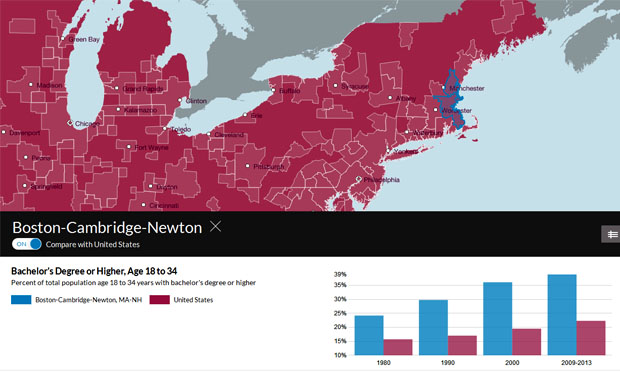The notion that journalists are math phobic and prone to error when working with numbers is an age-old cliché, embodied in the quip that, for many in the media, the plural of anecdote is data.
These notions remain firmly in place despite significant pushes by journalism schools and media organizations. For example, the media organization Investigative Reporters & Editors (IRE) has long sought to improve data literacy skills among journalists. While there has been a significant rise in data journalism — as exemplified by news outlets such as Quartz, Vox and FiveThirtyEight, as well as blogs and news verticals like “Wonkblog” and “The Upshot,” which make statistics and empirical thinking part of their core product — many journalists continue to hesitate when stories require that they tackle complicated numbers.
However, whether it’s reading a government-produced spreadsheet, calculating percentage changes or judging the results of complex academic studies, journalists often must confront the world of math, like it or not. For perspective on longstanding, fundamental media issues, read “Why Math Matters,” by Chip Scanlan at the Poynter Institute.
The following are some helpful resources for sharpening skills and deepening knowledge:
- Try the classic “Mathematics Competency Test for Journalists,” developed by Philip Meyer, UNC, Chapel Hill. Educators can find a version of the test without answers here. (Meyer’s book The New Precision Journalism is a touchstone in the field of data literacy.)
- To get in the mode of thinking more empirically, check out this fun take on “What Headlines Would Look Like If We Lived in a Mathematically Literate World.”
- Then see “Math Basics for Journalists: Working with Averages and Percentages,” from Journalist’s Resource. It’s a quick refresher.
- The Centre for Investigative Journalism has produced a helpful report, “Statistics for Journalists,” which examines issues such as how averages can mislead and “regression to the mean.” Authored by Connie St. Louis, City University, London.
- Robert Niles also provides a very helpful general resource with “Statistics Every Writer Should Know.”
- Key areas in business and politics often present challenges for general assignment reporters in terms of knowing what’s relevant and detecting underlying data problems. For examples, see “Reading Economic Data Releases from the Government,” by Chris Roush at UNC, Chapel Hill. Likewise, because knowledge of polling, survey methods and error margins is crucial, see “Polling Fundamentals and Concepts: An Overview for Journalists.”
- For a more advanced understanding of terminology at higher levels of analysis, review “Statistical Terms Used in Research studies: A Primer for Media.”
- Interpreting and writing about academic studies can be tricky. For useful insights, see “Interpreting Academic Studies: A Primer for Media,” also from Journalist’s Resource.
- To get a taste of how quantitative researchers use data, check out “Regression Analysis: A Quick Primer for Media on a Fundamental Form of Data Crunching.” It takes you through a basic technique researchers use to look at the relationship between variables.
- For a hands-on primer on using Excel to analyze real-world data, try “Data Journalism Lesson with Crime Stats: Parsing Close-call Numbers and Producing Valid Stories.” Using a dataset of 2013 crime stats from 269 U.S. cities, we walk you through the steps needed to find out what the data “say,” and point out traps that you should avoid.
- It’s worth remembering that even some of the best data-driven journalism practitioners sometimes fall short of achieving true scientific rigor. The University of Miami’s Alberto Cairo writes at Nieman Lab about how data journalism still needs to “up its own standards.”
- Finally, some problems go well beyond simple numerical errors and ultimately come down to flaws in logic, inference and causality. For a rigorous overview of how to build an explanatory theory, see “Guide to Critical Thinking, Research, Data and Theory: Overview for Journalists.”
Given the increasing complexity of public policy issues and the rise of massive data of all sorts, journalists have significant incentive to improve their basic math skills — long an important area of competency but now essential.
To get even deeper training, see the online course “Introduction to Statistics: Inference,” from U.C. Berkeley professors, which explores “statistical ideas and methods commonly used to make valid conclusions based on data from random samples.” There are also a number of free online statistics tutorials available, including one from Stat Trek and another from Experiment Resources. Stat Trek also offer a glossary that provides definitions of common statistical terms. Another useful resource is “Harnessing the Power of Statistics,” a chapter in The New Precision Journalism.
Keywords: training, data journalism, news


Expert Commentary